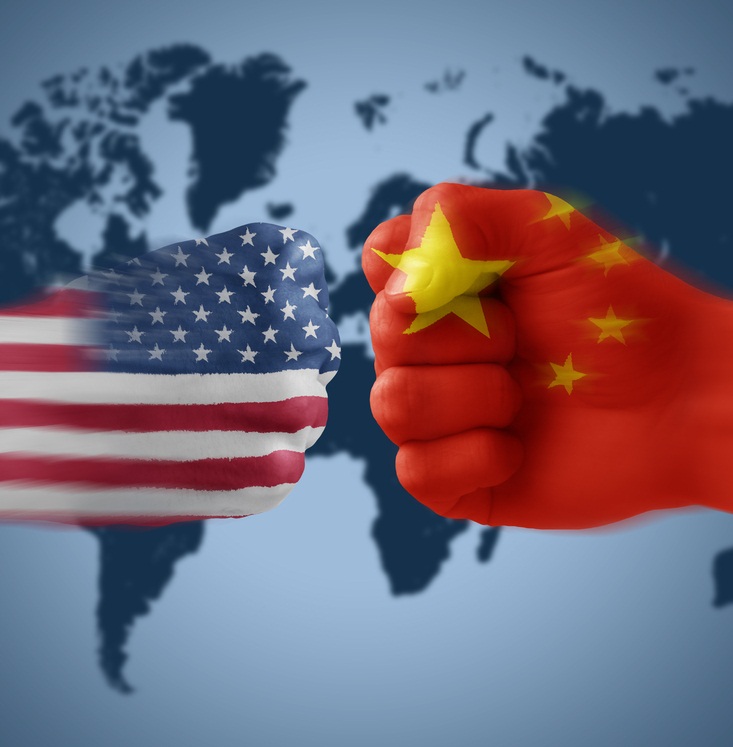
The Chinese government is reportedly doubling down on its campaign to halt the use of foreign technology, in favour of domestic solutions instead.
The Financial Times reported this week that Beijing has already issued guidelines to phase out American processors from the likes of AMD and Intel, in favour of domestic chips for government computers.
The Chinese government is also reportedly seeking to sideline the use of Microsoft’s Windows operating system, as well as foreign-made database software.
It should be remembered that Microsoft already offers Chinese officials a customised version of Windows 10 for use by governmental departments.
And in July 2023 China released its first home grown open-source desktop operating system, named OpenKylin, as Beijing stepped up domestic efforts to cut reliance on US technology.
Now according to the Financial Times report, this drive to reduce to the use of foreign tech in government computers, runs alongside a similar localisation drive under way in state-owned enterprises.
The FT reported that with little fanfare on 26 December 2023, the Chinese finance ministry and the Ministry of Industry and Information Technology (MIIT) began following the new PC, laptop and server purchasing guidelines this year.
The new Chinese guidelines reportedly order government agencies and Communist party entities above the township level to include criteria requiring “safe and reliable” processors and operating systems when making purchases.
Also on 26 December last year, the state testing agency, the China Information Technology Security Evaluation Center, reportedly published its first list of “safe and reliable” processors and operating systems, all from Chinese companies.
According to the FT report, among the 18 approved processors are chips from Huawei and state-backed group Phytium. Both of which are on the US export blacklist.
These Chinese processor makers utilise a mixture of chip architectures including Intel’s x86, ARM and homegrown ones, while operating systems are derived from open-source Linux software.
These new purchasing rules could represent China’s most significant step yet to build up domestic substitutes for foreign technology, and mirror similar moves in the United States and other Western nations to reduce reliance on Chinese made tech, amid growing geopolitical tensions.
China this week was publicly called out for its cyber espionage activities. On Monday both the US and UK imposed new sanctions on Chinese nationals and companies, after accusing the country of sustaining a cyber-attack campaign that has lasted more than a decade.
China has been clamping down on the use of foreign technology for a while now.
Last year Chinese officials denied reports that central government agencies had been ordered not to use iPhones for work or bring them into the office.
Prior to that in May 2023 China’s internet regulator banned chips made by US semiconductor firm Micron from being used by operators of critical infrastructure, after claiming that Micron’s products posed a “major security risk”.
A former Chinese commerce minister and trade policy adviser last year warned that Beijing’s retaliation was just a start in the dispute against the West.
But the move away from Western tech has been going on for years, and even saw the Chinese government in 2015 order that if a foreign computer system was sold to a Chinese bank, the Western firm must surrender its source code.
And in 2014 the Chinese government also reportedly pressured domestic banks to replace high-end IBM servers with similar equipment manufactured within the country, as part of a national security review.
Also in 2014 China developed and launched China OS, an independent operating system intended to compete with the likes of Apple’s iOS, Google’s Android and Microsoft’s Windows.
British retailer Marks & Spencer apologises after it struggles to recover from cyberattack this week,…
Apple to pivot manufacturing of iPhones for US away from China and to India, after…
Boom time. Amid ongoing cost cutting and potential break-up threat, Alphabet profits surge as AI…
AI pioneer OpenAI is interested if Google is forced to sell of its Chrome browser…
Several units within Google notified remote workers jobs will be in jeopardy if they don't…
Leading holders of Trump meme coin receive invitation to private gala dinner with US President,…